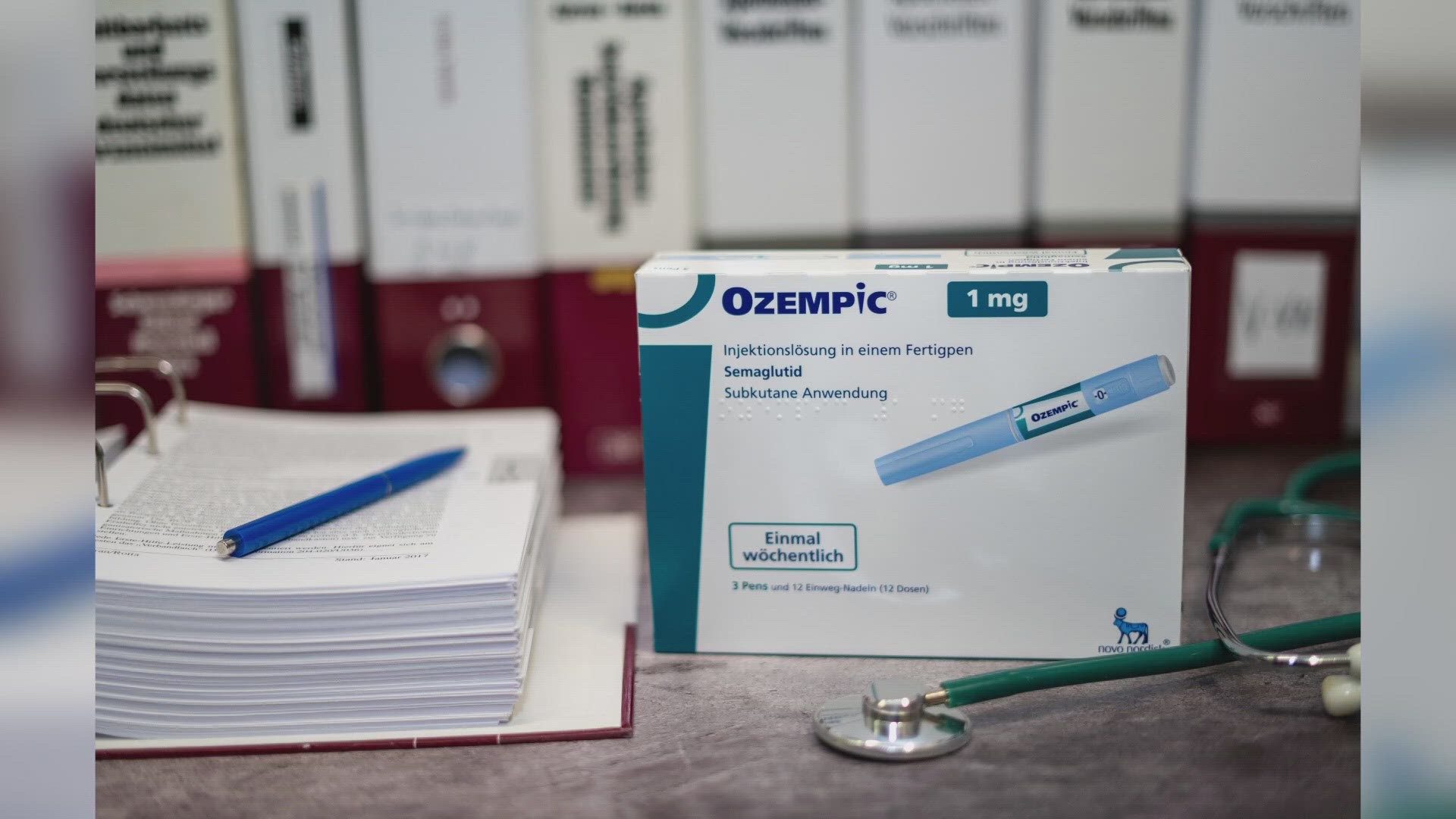PORTLAND, Maine — A drug initially designed to combat Type 2 diabetes has taken the weight loss world by storm.
Ozempic, a medication originally developed eight years ago to address diabetes, has gained immense popularity because of one of its side effects: weight loss.
This unexpected twist has led to widespread interest in its potential as a weight management solution.
In 2021, the FDA granted approval for a generic version of the drug specifically for weight loss. This generic variant, known as semaglutide, has generated a wave of interest among healthcare providers and patients alike.
Nicole Rancort, an individual whose life took a transformative turn thanks to semaglutide.
Nicole's journey began with a single weekly shot of the drug, leading her to shed an astonishing 60 pounds.
This dramatic weight loss not only altered her physical appearance but also her self-perception.
Nicole candidly shared her struggles with self-image, revealing her previous reluctance to be photographed due to a profound dissatisfaction with her appearance.
Through semaglutide, she found newfound confidence and vitality, discarding a range of health issues.
"I was borderline diabetic. I had high blood pressure and sleep apnea, and all those things have disappeared since the weight loss," Rancort said.
Nicole's experience underscores the immense potential of this drug, which seems to address more than just its intended purpose.
Micheal Bedecs, owner of the Age Management Center in Portland, acknowledged that obesity is a medical condition that requires a comprehensive approach beyond simple lifestyle changes.
"You would think that people who are overweight that it's their fault, they are doing something wrong, but obesity really is a medical condition," Bedecs said.
The center's stringent evaluation process, encompassing body mass index assessments, thorough examinations, and interviews, ensures that only suitable candidates gain access to this medication.
However, this promising solution comes at a significant cost, both financially and in terms of potential side effects.
The price of Ozempic, if not covered by insurance, can be as high as $1,700 per month, placing a considerable burden on individuals seeking weight loss benefits.
Despite the financial hurdle, many are still turning to Ozempic, resulting in a national shortage that has left diabetics, who rely on the drug, in a precarious position.
Med-Spas have been a game-changing solution for those seeking the benefits of semaglutide without the exorbitant price tag.
These facilities are offering the generic form of the drug at a fraction of the cost, presenting an accessible avenue for individuals looking to embark on their weight loss journeys.
Sarah Dayon, owner of NuLife Wellness Center, acknowledges the surge in demand from patients who are unable to access Ozempic due to supply shortages.
One success story is Sarah Noble.
"Semaglutide was that magic medicine that I've been missing," Noble said.
She recounts spending significant sums on various weight loss methods before semaglutide provided the breakthrough she had been seeking.
"I've spent tens of thousands of dollars on trainers, food plans, shakes and pills, and everything you can imagine," Noble said.
"I was 193 pounds, and I knew I needed to do something. I was active five times a week in the gym, I still wasn't seeing progress, so I started semaglutide, and within the first two weeks, I started feeling a drop every time I was coming in," Noble said.
As promising as Ozempic and its generic counterpart may be, experts emphasize the need for a holistic lifestyle shift to sustain weight loss results.
The drug's efficacy varies among individuals, and a gradual transition away from the medication is essential to prevent weight from rebounding.
Additionally, potential side effects, including nausea, vomiting, and stomach issues, must be taken into account.

